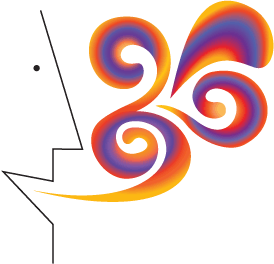Years ago, too many for me to comfortably tell you, I studied at Second City in Chicago with Del Close. Del was the master! We were his students and we hung on every word that came out of his mouth… or most of them. He was struggling at the time with substance abuse and there were moments when we had no idea what the heck he was talking about. It did not matter to us, we listened knowing that bits of his genius would come through at points in his rants and we did not want to miss them.
It was from Del and later from George Todisco, the visionary that founded Chicago City Limits, that I learned the wonders of improvisation. Creating something from nothing is a high better than any substance can bring.
There is much to tell about Del, George and improvisation, however, today I am going to focus on one aspect that Del taught us – observing life. A good improviser knows how to observe life. This skill is key because when on stage, observing even the smallest detail, like how a person’s breathing changes or a minor tick of the eye, can be the inspiration that help you to create magic.
Good improvisers do not think; they observe and respond. You would suppose just the opposite that an improviser is a quick thinker and although many of them are very quick witted, the true skill is in not thinking, but in seeing what is really happening in the moment. This skill of trusting yourself to discover something in the moment, in front of an audience, takes courage and confidence – this is why improvisational techniques can be powerful tools in helping people to become better communicators and speakers. I would go so far as to say better people too – but I’m saving that bit for my book.
Del helped us to see what was really happening in the moment. He would tell us always to ‘look for the humor’ in any given situation. There is humor everywhere and most of the time we are taking ourselves so seriously that we don’t see it.Del encouraged us to see just how funny the human condition really is, to take a step back and see how we get ourselves into jams, say the wrong things, stop paying attention and collide with objects and people and in general make a mess of our relationships.
At the time when I studied with Del, he would insist that when we were on stage our duty to the audience was to show them a ‘slice of life’. Our job was not just to be funny, but also to show the human condition, to demonstrate our pathetic and sometime heroic attempts to live our lives on this wacky planet. In order to do that, we had to see it.
Looking for the humor in every situation ends up being an interesting way to live your life. Even in the tensest situations, the absurdity of our condition can be discovered and that eases the burden. It also helps you to take yourself less seriously and to cut others some slack.
Try this for one day and watch the results. Take a day and observe people and yourself in everyday situations. Observe how people walk, what they say, how they respond to even little situations. You will discover if you are really paying attention, their humanity – their fears, their quirks, their frustrations, and their desires. You may even find yourself listening at a level that you did not listen before. The results of this exercise are always positive unless you are already a hopeless curmudgeon, you will walk away with a better understanding and more empathy for those in your life and for people in general. Become an observer.

Very inspiring and good practical suggestions to not be a boring person. Love it. Look forward to your next blog entry.
“Del was the master!”
This makes me smile. When I think of my masters of improv, the list that comes to mind instantly is: George, Paul, Linda, Bill, Chris . . . and you (not necessarily in that order).
I’ve studied under many “gurus” of improv, corresponded with dozens more, and talked theory until we were blue in the face (or drunk, I forget which).
I’ve taught more students than I can count, some who have gone on to be artistic directors of more famous groups and in turn teach hundreds of students of their own.
And when I’m teaching and I need an example (whether to reference or just to frame an issue in my own mind), it’s from an original cast CCL show or workshop that I find myself revisiting most of the time.